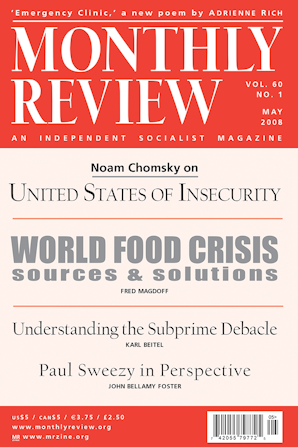Also in this issue
Article by Gabriel Matthew Schivone
- Tributes to Robert W. McChesney
- Genocide Denial with a Vengeance: Old and New Imperial Norms
- Humanitarian Imperialism: The New Doctrine of Imperial Right
- Imminent Crises: Threats and Opportunities
- Imperial Ambition: An Interview with Noam Chomsky
- The United States is a Leading Terrorist State: An Interview with Noam Chomsky: An Interview with Noam Chomsky by David Barsamian

